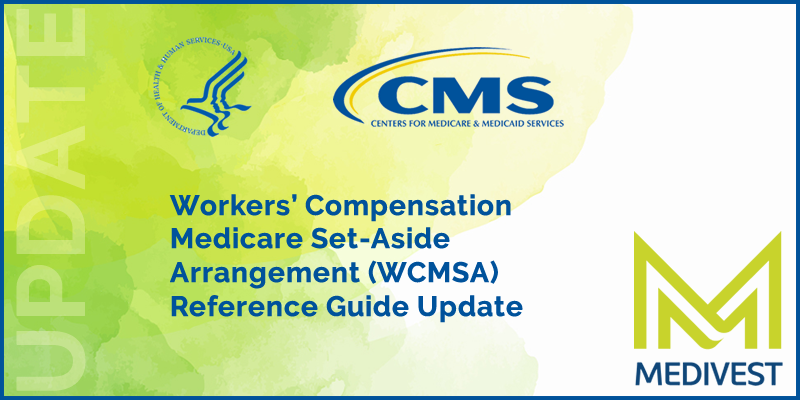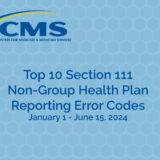Medicare Set-Aside (MSA) arrangement beneficiaries have some very specific limitations when it comes to how their money is spent. When it comes to choosing a provider, the options are wide open. A beneficiary will often deal with who they know or a provider that is close to their home. As a cash payer with limited funds to cover all future Medicare allowable and injury related expenses, the wrong choice can put a beneficiary in a world of hurt. Here are some best practices when choosing a provider to treat an injury post settlement and using Medicare Set-Aside funds:
Choose a Medicare Certified Provider
While MSA funds can be used to pay any provider that supplies covered care related to the injury, not every provider is able to bill Medicare for these medical goods or services. If a beneficiary properly exhausts their MSA funds in a given year (when the MSA is funded with a structured annuity and receives deposits periodically) or the MSA funds have permanently exhausted, Medicare will assume responsibility to pay Medicare covered expenses related to the injury and coordinate with any other applicable insurance plan. If the provider is not Medicare certified, that provider will not be paid by Medicare even if the beneficiary has maintained Medicare coverage. This can leave the beneficiary as the responsible party if no other insurance benefit is available. We recommend choosing Medicare certified providers to avoid such situations.
Choose Providers Who Offer Discounted Cash Rates
A beneficiary with MSA funds is considered a cash payer by medical providers. There is no “in network” policy with set payment rates for cash payers. If the provider is not accustomed to dealing with patients without a primary medical insurance plan, the provider may charge its full retail rate. A beneficiary may have a difficult time negotiating a medical bill on their own or in advance of services being completed and this can add up to a significant expenditure of MSA funds. It is best to ask about cash rates and if any discounts are available when contacting a new provider.
Avoid Providers That Don’t Normally Bill Insurance
Billing insurance for medical services means increased access to patients because it agrees to a negotiated contract that reduces the average cost of services. Some providers opt to avoid insurance altogether. This allows these providers to charge higher rates for services because there is no set rate or maximum charge. Moreover, these providers will only take the beneficiary’s cash even if they have a group health plan or public benefit. This lack of flexibility is often costly for the beneficiary.
Choose Providers Experienced with Traumatic Injuries
This may seem obvious, but as a professional administrator, Medivest sees beneficiaries choosing providers that are not familiar with treating traumatic injuries post-settlement. This can be problematic from a communication standpoint (while the beneficiary and the administrator know the injury backwards and forwards, the doctor may see very few of these cases) and it can make billing and payment more difficult or present difficulties when seeking a referral to a specialists. The most efficient approach is to choose a provider that KNOWS the beneficiary’s type of injury from direct experience.
Choose a Flexible Provider
Here are a few common red flag phrases from providers that limit the beneficiary’s options:
“We only bill Medicare.”
“We don’t deal with liability injuries.”
“We never treat workers’ compensation injuries.”
“We only treat workers’ compensation injuries.”
“We don’t bill third parties.”
“We don’t take cash.”
Providers experienced with multiple scenarios provide the beneficiary with options when it comes to treatment and payment.
Beware of Signing Rate Agreements for Specific Services
A beneficiary that is not acquainted with the typical market rate or medical fee schedules is advised to run away from any agreement or contract that would lock them into a guaranteed payment rate. A rate agreement of this nature can put the beneficiary on the hook for significantly inflated cost. If they’re using a professional administrator (and they should be), it can negotiate with the provider directly on the beneficiary’s behalf. Don’t confuse this document with an authorization form to bill insurance or a notification that the beneficiary is responsible for any non-covered services. They’re not the same thing.
Avoid buying OTC Supplements or Supplies Directly from a Provider
Over-the-counter supplements or supplies that are sold directly by a provider typically come with a markup and can usually be found cheaper elsewhere. Your providers may recommend a device or a supplement that they conveniently stocks for sale. You should be aware that the providers may be looking to increase their margin per patient. Take your doctor’s advice and do your research. If the recommended supply of supplement makes sense, shop around for a better price.
Do Not Be Discouraged if a Provider Rejects Payment from the MSA
Most providers within the US Healthcare system do not understand what a Medicare Set-Aside is or what it is for. They are frequently hesitant to accept it as a form of payment. They may mistake it for a Medicare Part C plan or out of network benefit. Sometimes, they are highly suspicious and cannot believe that Medicare is not the primary payer. It can be daunting for a beneficiary to be in the position of educating a provider’s billing office. A professional administrator is a great resource for coordinating benefits and having the MSA be the primary payment source, when applicable.
Conclusion
A MSA beneficiary with a persistent injury deserves the best care possible, but also needs to be positioned to ensure the MSA funds last. And if they don’t last, that the beneficiary has a proper safety net in place. Part of this strategy includes finding the right providers to not only address the injury with competence but also provide affordable and flexible options to ensure continuity of care and protect the beneficiary from having to dip into other settlement or personal funds. Even when Medicare is responsible for covering injury care, the beneficiary can be billed for any deductible, copay, or coinsurance balances.
Last, we’d be remiss if we didn’t point out that a professional administrator addresses these challenges every day and not only talks to a beneficiary’s provider on their behalf, but will also coordinate benefits with other insurance, communicate with CMS about the MSA, and negotiate rates in ways a patient will struggle to match. If you or your client is a current or future beneficiary of a Medicare Set-Aside, don’t hesitate to contact Medivest. We help thousands of beneficiaries avoid these and many other MSA pitfalls.














